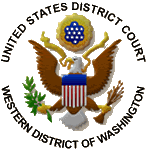
John Doe (masculine) and Jane Doe (feminine) are multiple-use placeholder names that are used in the United States and the United Kingdom when the true name of a person is unknown or is being intentionally concealed. In the context of law enforcement in the United States, such names are often used to refer to a corpse whose identity is unknown or cannot be confirmed. These names are also often used to refer to a hypothetical "everyman" in other contexts, in a manner similar to John Q. Public or "Joe Public". There are many variants to the above names, including John Roe, Richard Roe, Jane Roe, Baby Doe, and Janie Doe/Johnny Doe.
An anonymous remailer is a server that receives messages with embedded instructions on where to send them next, and that forwards them without revealing where they originally came from. There are cypherpunk anonymous remailers, mixmaster anonymous remailers, and nym servers, among others, which differ in how they work, in the policies they adopt, and in the type of attack on the anonymity of e-mail they can resist. Remailing as discussed in this article applies to e-mails intended for particular recipients, not the general public. Anonymity in the latter case is more easily addressed by using any of several methods of anonymous publication.
An email address identifies an email box to which messages are delivered. While early messaging systems used a variety of formats for addressing, today, email addresses follow a set of specific rules originally standardized by the Internet Engineering Task Force (IETF) in the 1980s, and updated by RFC 5322 and 6854. The term email address in this article refers to just the addr-spec in Section 3.4 of RFC 5322. The RFC defines address more broadly as either a mailbox or group. A mailbox value can be either a name-addr, which contains a display-name and addr-spec, or the more common addr-spec alone.
Sender Policy Framework (SPF) is an email authentication method which ensures the sending mail server is authorized to originate mail from the email sender's domain. This authentication only applies to the email sender listed in the "envelope from" field during the initial SMTP connection. If the email is bounced, a message is sent to this address, and for downstream transmission it typically appears in the "Return-Path" header. To authenticate the email address which is actually visible to recipients on the "To:" line, other technologies such as DMARC must be used. Forgery of this address is known as email spoofing, and is often used in phishing and email spam.

Apple v. Does was a high-profile legal proceeding in United States of America notable for bringing into question the breadth of the shield law protecting journalists from being forced to reveal their sources, and whether that law applied to online news journalists writing about corporate trade secrets. The case was also notable for the large collection of amici curiae who joined in the matter.

The Delaware Supreme Court is the sole appellate court in the United States state of Delaware. Because Delaware is a popular haven for corporations, the Court has developed a worldwide reputation as a respected source of corporate law decisions, particularly in the area of mergers and acquisitions.
An anonymous post, is an entry on a textboard, anonymous bulletin board system, or other discussion forums like Internet forum, without a screen name or more commonly by using a non-identifiable pseudonym. Some online forums such as Slashdot do not allow such posts, requiring users to be registered either under their real name or utilizing a pseudonym. Others like JuicyCampus, AutoAdmit, 2channel, and other Futaba-based imageboards thrive on anonymity. Users of 4chan, in particular, interact in an anonymous and ephemeral environment that facilitates rapid generation of new trends.
Domain-based Message Authentication, Reporting and Conformance (DMARC) is an email authentication protocol. It is designed to give email domain owners the ability to protect their domain from unauthorized use, commonly known as email spoofing. The purpose and primary outcome of implementing DMARC is to protect a domain from being used in business email compromise attacks, phishing email, email scams and other cyber threat activities.
A Doe subpoena is a subpoena that seeks the identity of an unknown defendant to a lawsuit. Most jurisdictions permit a plaintiff who does not yet know a defendant's identity to file suit against John Doe and then use the tools of the discovery process to seek the defendant's true name. A Doe subpoena is often served on an online service provider or ISP for the purpose of identifying the author of an anonymous post.

Doe v. 2themart.com Inc., 140 F. Supp. 2d 1088 (2001), was a federal case decided by United States District Court for the Western District of Washington, on the issue of an individual's First Amendment right to speak anonymously on the Internet and a private party's right to disclose the identity of the anonymous Internet user by enforcing a civil subpoena. The court held that 2TheMart.com (TMRT) failed to show that the identities of these anonymous Internet users were directly and materially relevant to the core defense in the litigation, and thus the subpoena should not be issued. Therefore, Doe's motion to quash the subpoena was granted.
Dendrite International, Inc. v. Doe No. 3, 342 N.J. Super. 134, 775 A.2d 756, is a New Jersey Superior Court case in which Dendrite International, Inc., a purveyor of computer software used in the pharmaceutical industry, brought a John Doe lawsuit against individuals who had anonymously posted criticisms of the company on a Yahoo message board. When Presiding Chancery Judge Kenneth MacKenzie rejected one of Dendrite's requests to compel Yahoo to reveal the identity of an anonymous defendant, Dendrite appealed. The appellate court upheld the district court's decision, and in doing so, created a set of guidelines for determining the circumstances under which an anonymous online speaker may be unmasked. This standard has since been applied to other cases, such as Mobilisa, Inc. v. Doe, Gallucci v. New Jersey On-Line LLC, Independent Newspapers v. Brodie, and The Mortgage Specialists, Inc. v. Implode-Explode Heavy Industries, Inc.

Doe v. Cahill, 884 A.2d 451, is a significant case in the realm of anonymous internet speech and the First Amendment. While similar issues had been tackled involving criticism of a publicly traded company, the case marks the first time the Delaware Supreme Court addressed the issue of anonymous internet speech and defamation "in the context of a case involving political criticism of a public figure."
McIntyre v. Ohio Elections Commission, 514 U.S. 334 (1995), is a case in which the Supreme Court of the United States held that an Ohio statute prohibiting anonymous campaign literature is unconstitutional because it violates the First Amendment to the U.S. Constitution, which protects the freedom of speech. In a 7–2 decision authored by Justice John Paul Stevens, the Court found that the First Amendment protects the decision of an author to remain anonymous.

Pacific Century International, Ltd. v. Does 1-101, No. 4:11-cv-02533, is a court case where Pacific Century International requested to subpoena the names and identities of 101 BitTorrent users whose IP Addresses were tied to downloading one of their copyrighted works. The resulting court decision permitted Pacific Century International to subpoena the identity of Doe 1, but dismissed claims against Does 2-101 for failure to demonstrate that the Does had operated as a single group while distributing the torrent, preventing each users' subpoena request from being enjoined into a single court filing. This case set a precedent for disallowing filings against large groups of IP addresses used to distribute copyrighted works over peer-to-peer networks.

Anonymous Online Speakers v. United States District Court for the District of Nevada, 611 F.3d 653 (2010), is a decision by the Ninth Circuit lowering the standard a plaintiff must meet to compel identification of anonymous posters on the Internet.

The Mortgage Specialists, Inc. v. Implode-Explode Heavy Industries, Inc. is a New Hampshire Supreme Court case in which Mortgage Specialists, a mortgage lender, sought to obtain the identity of an anonymous source who provided Implode-Explode Heavy Industries (Implode), a website monitoring risky lenders, with a confidential document detailing Mortgage Specialists' loan practices. Mortgage Specialists also sought to prohibit the republication of the document and learn the identity of an anonymous individual who allegedly defamed Mortgage Specialists on Implode's website. Mortgage Specialists disputed Implode's status as a news organization, claiming that it should not be afforded the rights of a news organization under the First Amendment to the U.S. Constitution and Part I, Article 22 of the New Hampshire Constitution.

Krinsky v. Doe 6, was a decision by the California Court of Appeal, Sixth District, addressing the evidentiary standard required of plaintiffs seeking the identification of anonymous Internet posters. The case addressed defamation and the right to anonymous speech on the Internet. Plaintiff Lisa Krinsky sued Doe 6, an anonymous poster to Yahoo! message boards, for defamation. Krinsky served a subpoena to Yahoo! for Doe 6's identity. Doe 6 filed a motion to quash the subpoena, "contending that he had a First Amendment right to speak anonymously on the Internet."

Hard Drive Productions, Inc. v. Does 1–1,495, Civil Action No. 11-1741 (JDB/JMF), was a United States District Court for the District of Columbia case in which the court held that anonymous users of the peer-to-peer file sharing service BitTorrent could not remain anonymous after charges of copyright infringement were brought against them. The court ultimately dismissed the case, but the identities of defendants were publicly exposed.
Microsoft Corp. v. United States, known on appeal to the U.S. Supreme Court as United States v. Microsoft Corp., 584 U.S. ___, 138 S. Ct. 1186 (2018), was a data privacy case involving the extraterritoriality of law enforcement seeking electronic data under the 1986 Stored Communications Act, Title II of the Electronic Communications Privacy Act of 1986 (ECPA), in light of modern computing and Internet technologies such as data centers and cloud storage.







